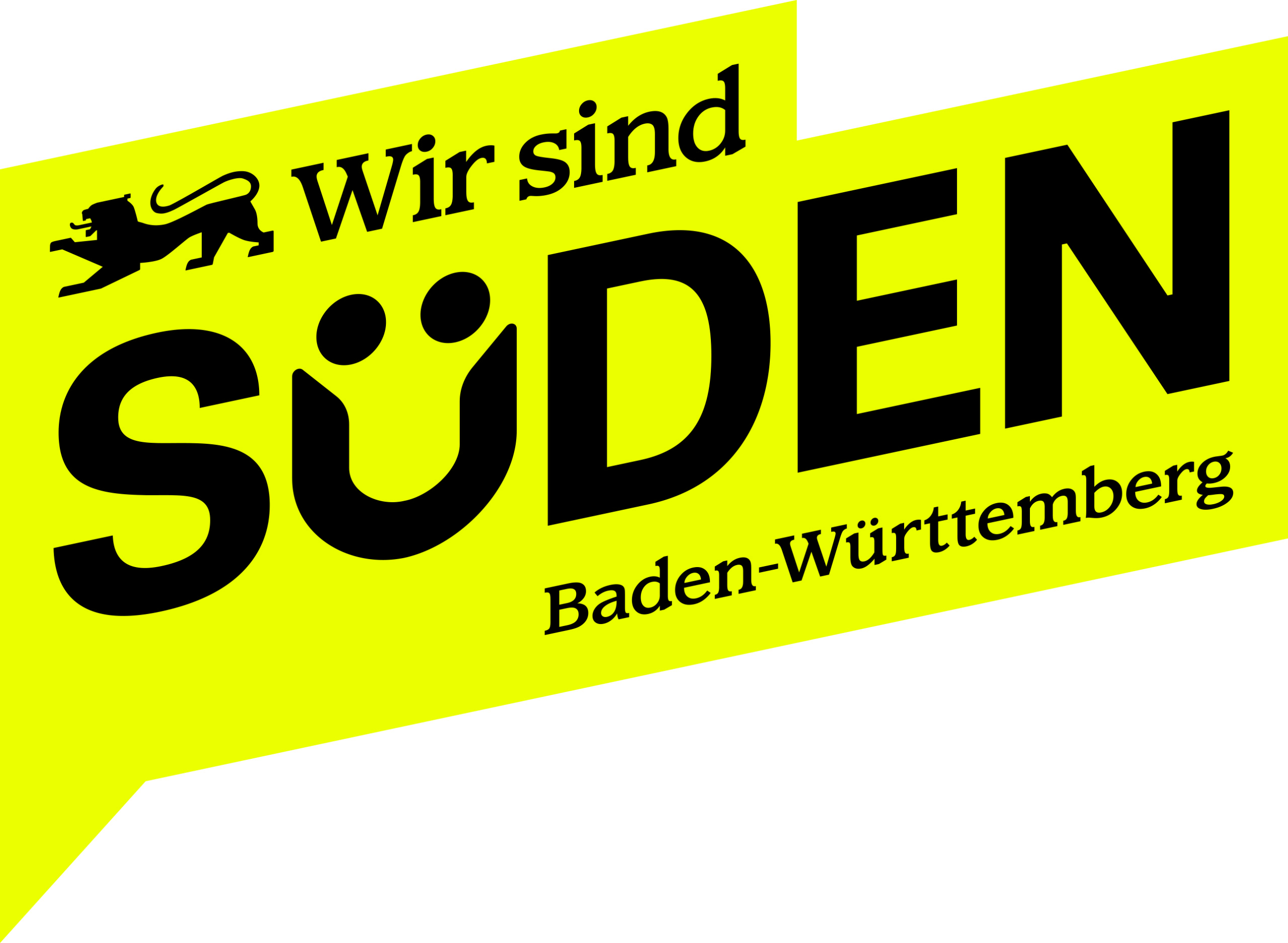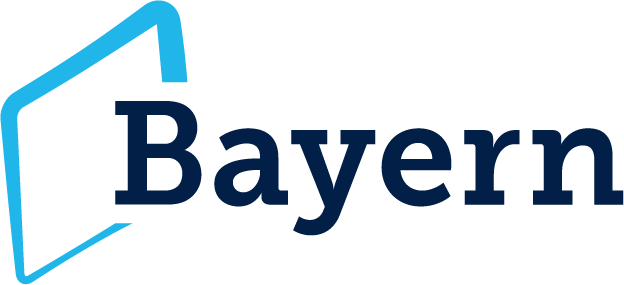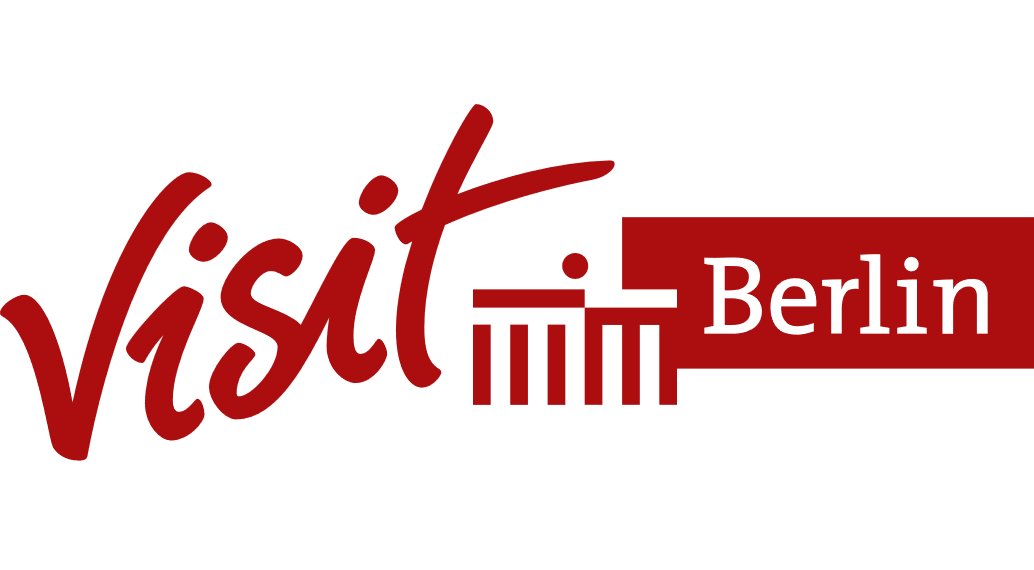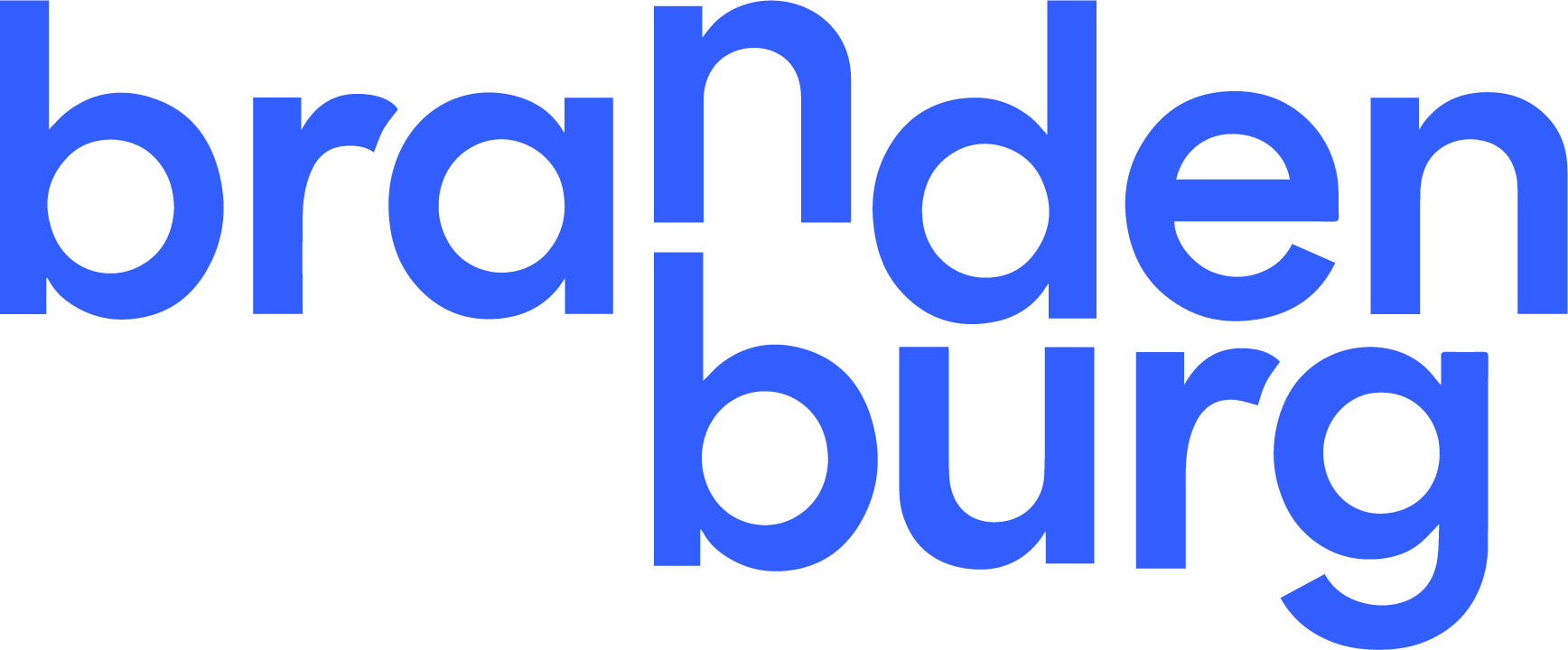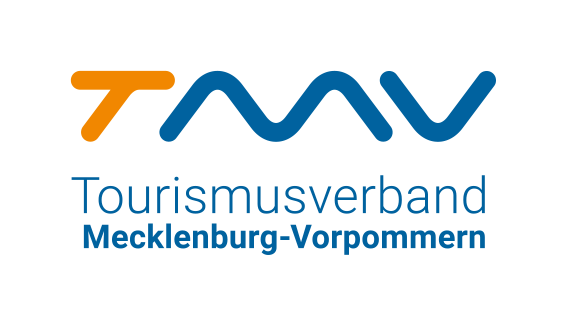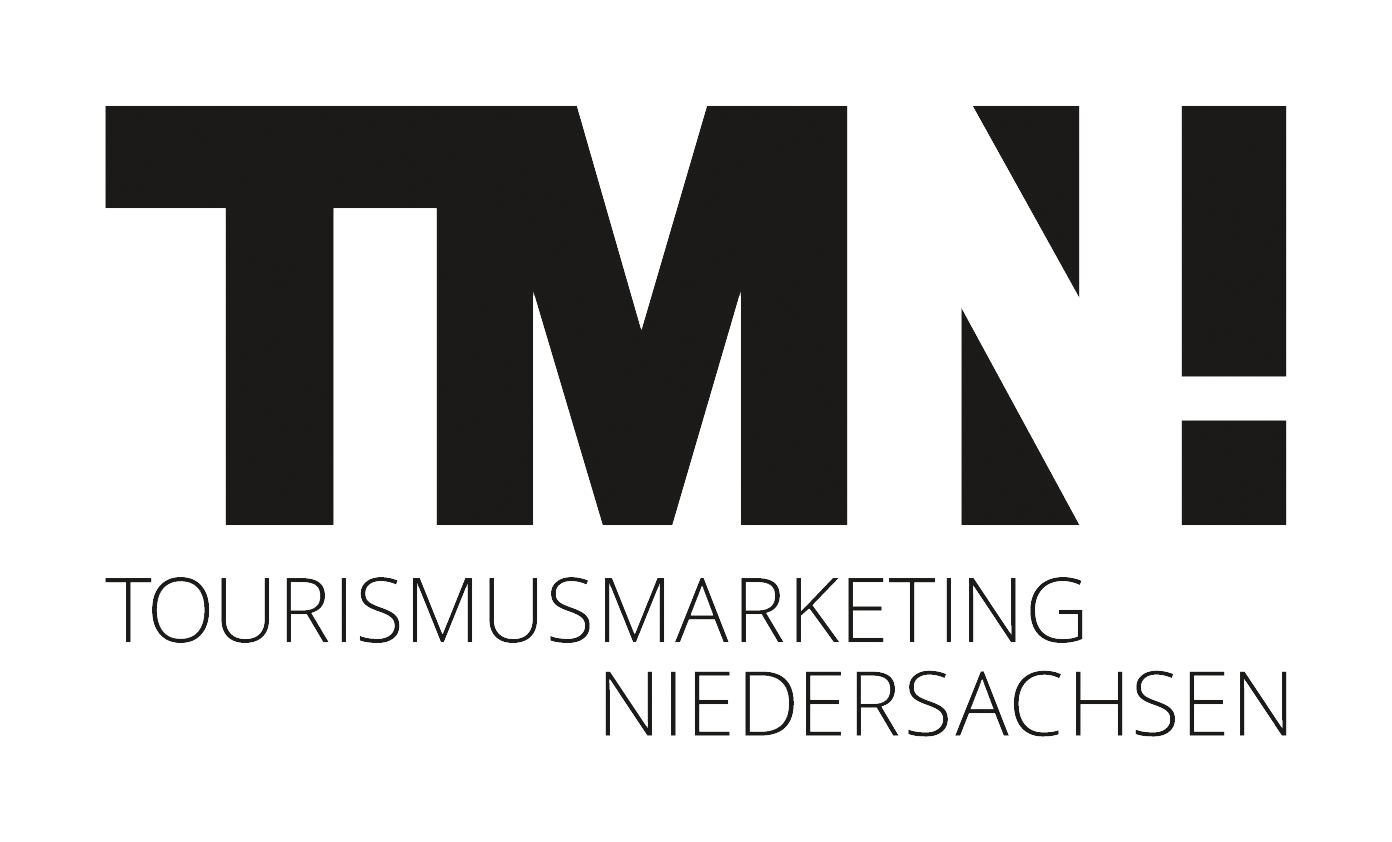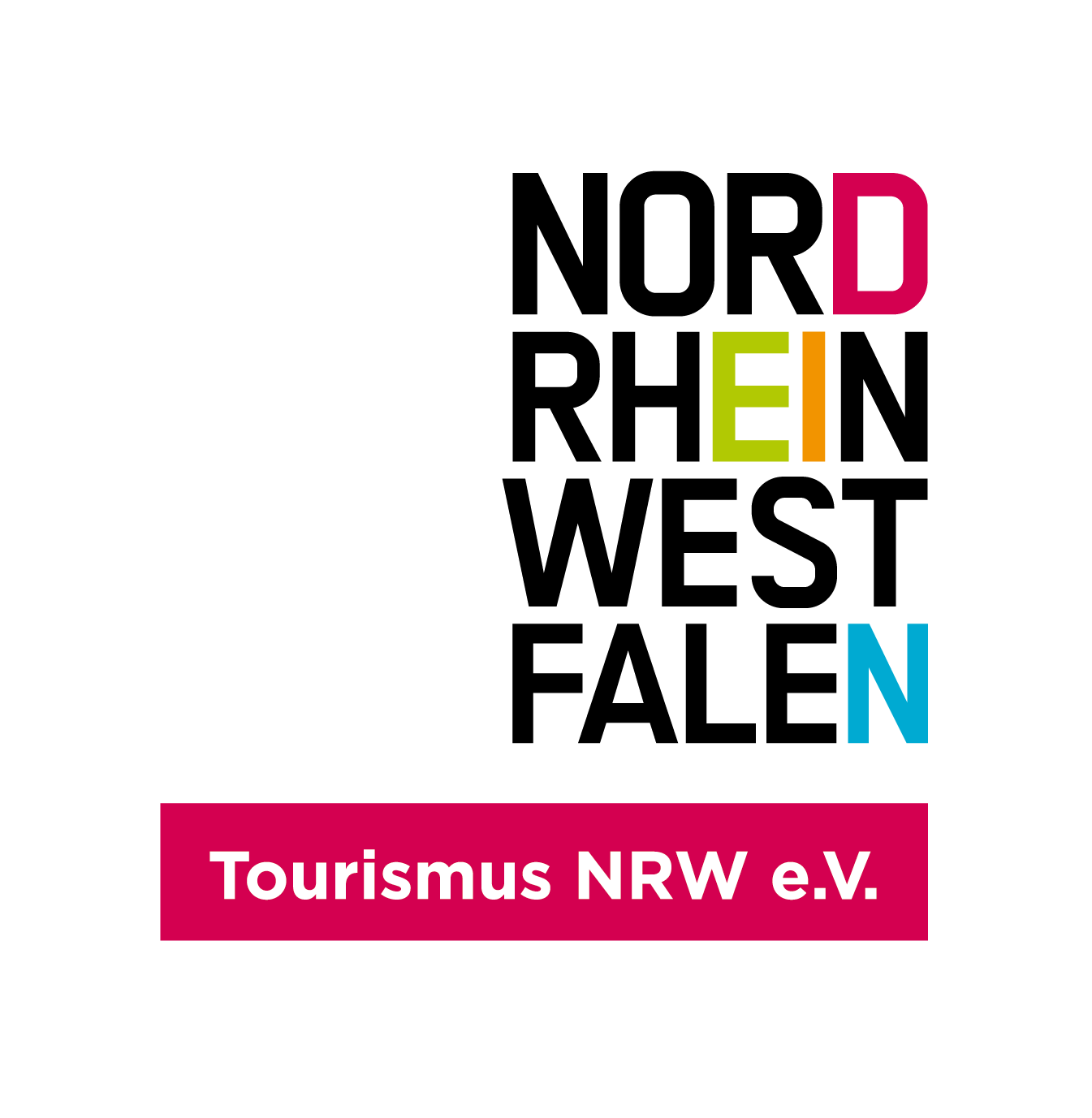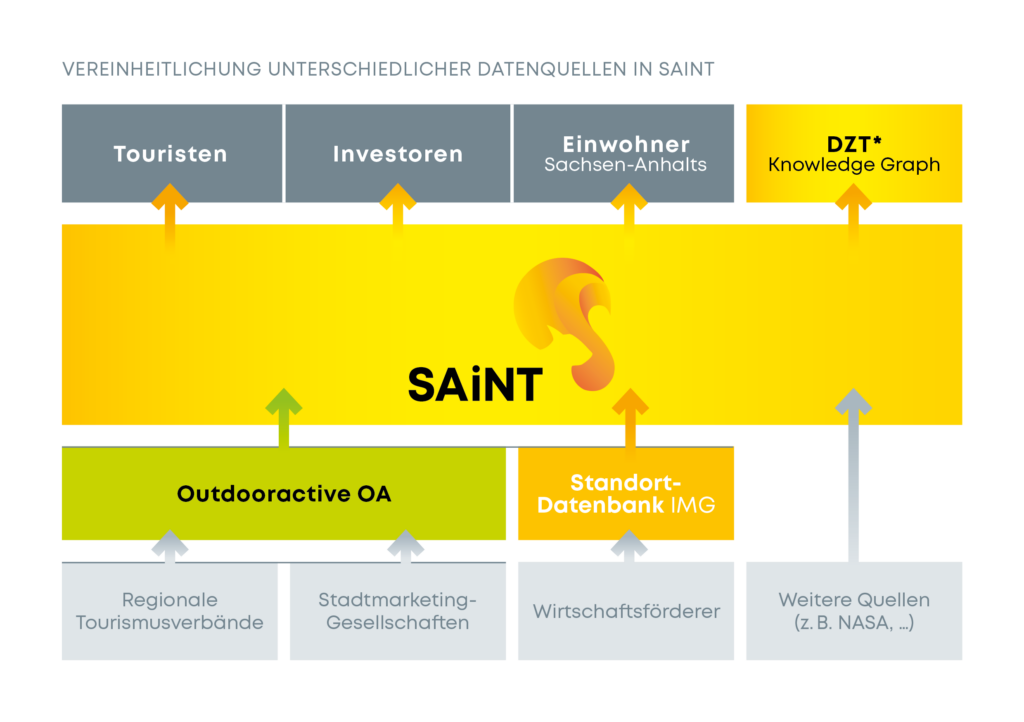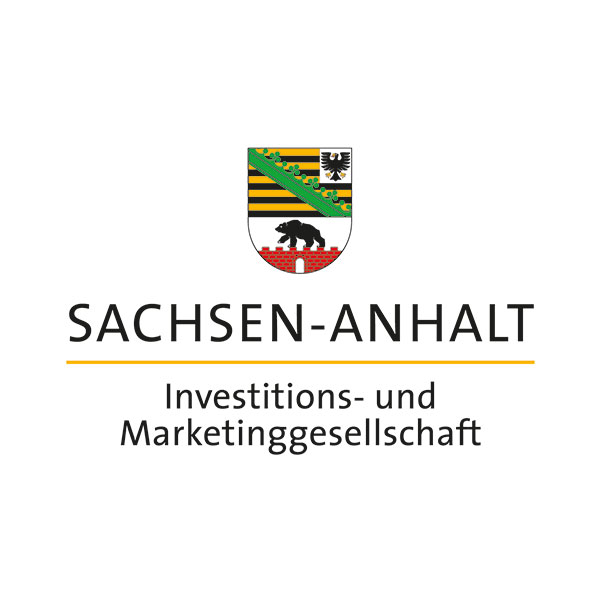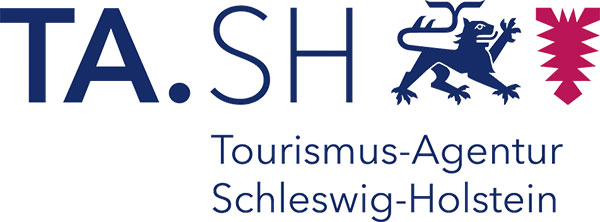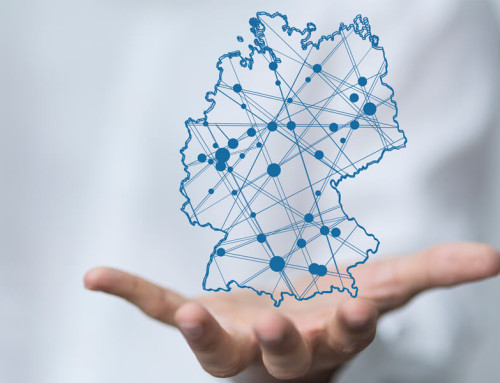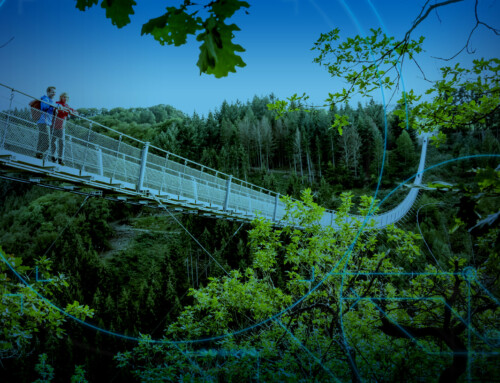In addition to the activities of the Open Data Project Group, the LTOs and Magic Cities are also actively promoting the topic in their federal states and cities. The following article is intended to provide you with a brief overview of the current project status and further procedures. If you have any questions, please do not hesitate to contact the referring person.
In Baden-Württemberg, the mein.toubiz database from the agency land in sicht is used as the central state system for recording and digitizing the tourism infrastructure. All data types relevant to tourism such as POIs & infrastructure, routes & tours, events, regions, cities & towns, gastronomy, accommodation, ski regions, offers and experiences can be maintained in mein.toubiz. Data maintenance is decentralized, mainly at the local and regional level or by the service providers and suppliers themselves. A total of over 4,000 logins enter their data. Data maintenance directly on site ensures that maximum expert knowledge is entered into the system. Tourismus Marketing GmbH Baden-Württemberg (TMBW) ensures that the data is visible. The data from the mein.toubiz database is displayed in over 2,500 widgets and provides the framework for 250 tourism websites. Ministries in Baden-Württemberg also access the data provided. The data is enriched and enhanced through cooperations, such as with the Baden-Württemberg public transport company, for example by adding live public transport data to the system. An integrated open data check makes it possible to define which license can be granted for each data set or image/medium when entering it. This ensures that content sharing is clearly regulated. At the beginning of 2025, 200,000 datasets from all over Baden-Württemberg have been recorded. The open data is available to interested parties free of charge via the Knowledge Graph and the Open Data Pool using an API. One focus in data collection is on data quality. In addition to factors such as timeliness, accuracy and completeness, good data quality is achieved by enriching the data with external data sources, data depth and specific information on topics such as accessibility, sustainability or family friendliness. The TMBW supports data maintainers in Baden-Württemberg with accompanying online seminars, sample templates, on-demand offers, e-learning tools, regular information events and a chatbot.
Information on data management in Baden-Württemberg can be found at Tourismusnetzwerk BW.
With BayernCloud Tourismus, BayTM creates a digital platform for providing and sharing open tourism data based on the software solution dataCycle of pixelpoint multimedia werbe GmbH. In addition to the data available under open data licenses, the platform is also published under an open source license to ensure the sustainable further development and long-term use of BayernCloud Tourismus. Designed as a data hub, BayernCloud Tourismus enables simple data exchange for different stakeholders and thus makes all relevant tourism information available centrally and up-to-date for further use with the help of open data licenses from Bavaria.
Thus, the data can be easily and automatically used for further output channels as well as the GNTB’s Knowledge Graph and the visibility of the tourism offer is increased. At the same time, this reduces the data maintenance effort for the regions, destinations and municipalities. In addition, the networking of data and easier access to data creates numerous potentials for innovative solutions for Bavarian tourism.
In addition to static data, such as POIs, accommodation, gastronomy, tours, events and experiences, dynamic data also flows into BayernCloud Tourism. This includes, for example, parking lot occupancy data, visitor numbers and current snow depths. In the future, traffic information, live public transport data and weather data will also be integrated. The real-time data flows into BayernCloud Tourismus via interfaces, where it is bundled and processed and then efficiently forwarded to many different platforms.
More information about BayernCloud Tourism is available at bayerncloud.digital.
According to Berlin’s current Tourism Concept 2018+, digitalisation in urban tourism is of crucial relevance. To take this aspect into account, visitBerlin is currently in the middle of a digital transformation process. This consists of several individual components, such as the digitalization of visitor flows based on mobile phone data and the use of ever new applications to ensure a future-oriented approach.
Data and its use represent the elementary basis for this. visitBerlin has also put the “data hub” into operation with regard to the use of open data. Here, diverse tourism knowledge, for example in the form of events, multimedia information, insider tips and suitable products, has been brought together in a systemically networked form to provide an even more comprehensive picture of Berlin tourism. For some time now, information on our main portal about, for instance places of interest or events has been structured and displayed in an excellent way according to schema.org. With the “data hub”, this information will be bundled more than before and made available in a coordinated manner. In addition to the connection of the existing systems, the bracket will also become the consolidated basis for the output and thus also be able to broaden the availability of structured outputs for open data.
For more than 15 years, the TMB has been operating the cross-state content network Brandenburg on the basis of self-developed POI, event, tour, MICE, media and accessibility databases. Over 500 institutional editors (tourism associations, tourist information offices, local authorities, businesses, etc.) and over 2,300 digital output channels from regional, national and international partners are connected to the databases. The TMB and its partners were awarded the German Tourism Prize in 2018 for this network development of joint, standardized content management, which is unique in Germany to date. The databases contain around 45,000 event, 35,000 POI, 2,500 tour and other special interest data records (e.g. providers with information on accessibility), which are collected for use cases in tourism as well as for the local population. Thanks to the in-house development of the system, individual structures can be created for each client via the multi-client capability and the very extensive rights system (own certificates, categories, room structures, maintenance rights, input masks, etc.). The databases of the Brandenburg content network are the technical basis for DB Regio’s nationwide APP DB Ausflug. The content network was also the initial partner for the ADAC’s Europe-wide tourism app.
The databases of the content network are technically and organizationally operated by TMB. This includes system hosting, guidelines, training, quality management and further development of the system. The data will be made available to users daily as XML and, from 2025, also in other formats (e.g. Json). The basis for the use of data is a content supply contract. In addition to many hundreds of websites and APPs from tourism organizations, municipalities, tourism providers and others, data users also include the state-wide “My Brandenburg” software with 140 licensees and over 400 digital touchpoints on site, 1,200 publicly accessible WLAN hotspots, the municipal APP family “Smart Village APP”, the intermodal mobility platform “bb-navi” and international partners. An encapsulable website framework for Brandenburg’s destinations has been supplementing the reach of the data collected for many years with 14 portals and an average of 3.9 million unique users.
Since 2020, TMB has been working with its partners to develop a new data management system (tourism data hub). In the process, an input management system is created as an in-house development. The data is then transferred to an output management system that distributes the data in various formats. On this basis, output management will be able to play out the data in the future using the “extended schema.org annotation” developed in the Open Data Tourism Alliance.
The TMB is involved in the Steering Committee of the Open Data Tourism Alliance to ensure efficient dovetailing between the development of schema.org annotations and the application level. The TMB is involved in the Route 3.0 initiative of the German Tourism Association’s “Quality and Customer Orientation” working group to ensure high-quality content that meets the needs of users. The TMB is also an initial partner of the nationwide digitization initiative for tourism services in the National Natural Landscapes and a project partner of the nationwide research project “DIANA-T” for the development of a decentralized data platform, on the basis of which cross-company services for SMEs and regions in the tourism industry can be developed and tested. At the federal level, the TMB is involved in the aforementioned initiatives as a project partner in the Digitalization Working Group of the National Platform Future Tourism for a close link with the tourism industry.
For more information, visit www.contentnetzwerk-brandenburg.de.
Contact person at TMB Tourismus-Marketing Brandenburg GmbH
Marcel Tischer
WFB Wirtschaftsförderung Bremen GmbH
Contact persons at Wirtschaftsförderung Bremen GmbH – Marketing & Tourism Division
Martina Ziesing
Lea Garner
Henning Sklorz
The state-wide database can uniformly record, network and digitize Hesse’s tourist diversity with its sights and excursion options, accommodation, events and gastronomy. The aim is to play out the content in an automated and target group-oriented manner via the relevant channels of the guests and to increase the visibility of the tourist offer in Hesse. Direct access for partners and stakeholders and the connection of existing systems in the state will eliminate data silos, avoid duplicate maintenance and enable connection to the knowledge graph of the German National Tourist Board. The Hessen Tourism Hub consists of five modules that provide tourism partners with a comprehensive digital offering. The Content Hub (CHH) forms the heart of the modular system. In cooperation with Thüringer Tourismus GmbH (TTG) and Berlin Tourismus & Kongress GmbH, Hessen uses the graph-based content database, the so-called Thuringian Tourism Content Architecture (ThüCAT), as the technical basis. The content database has been adapted and further developed to meet the specific needs and requirements of the Hessian tourism industry. The project follows the open data approach with a common tourism data standard based on schema.org and the Open Data Tourism Alliance (ODTA). Another module of the Hesse Tourism Hub is the Experience Hub, a database for bookable offers such as tours and activities. In a pioneering role throughout Germany, the bookable data from the leading reservation systems in Hesse is bundled and standardized in the Experience Hub. It is then made available to end customers in a standardized and personalized, typically Hessian user interface. The Media Hub is the central database for tourist images and videos. As a state-wide image database, it bundles the tourism open data image material and makes it available free of charge to partners in the state, media representatives, agencies and other interested parties. The hub system is complemented by the market research dashboard, the performance hub, as well as the e-learning platform, the training hub.
For more information on the Tourism Hub Hessen, visit the Tourism Network.
Contact persons at HA Hessen Agentur GmbH
- Oliver Maniyar
Fiona Blume
Hamburg Tourismus GmbH (HHT) is a successful public-private partnership model. It aims to be a service provider, initiator and network partner for the industry both inside and outside the city.
In its role as a service provider, the provision of content to service providers and market players has played an important role for years. For example, a preliminary stage of open data has already been successfully implemented in the “Hamburg and Metropolitan Region Event Database” since 2014. This data is fed into the Knowledge Graph.
Contact persons at Hamburg Tourismus GmbH
Thomas Langel
- Johannes Leistner
Mecklenburg-Vorpommern’s tourist data collection of destinations, events and accommodation was set up with its renewal in 2013 according to the principle of freely usable data. The translation of the additional terms of use into the global standards of Creative Commons will be completed by the end of 2025. The shared database of the holiday region between the Baltic Sea and the Lake District is filled in by the DMOs, individual tourist resorts and trade associations. Due to this spatial or thematic proximity to the service providers, the information on an excursion destination or sight is thus also basically checked by the tourism experts from the respective region.
The centrally stored data, currently almost 6,000 excursion destinations/accommodations and over 10,000 events per year, is made available by the MV Tourism Association in XML, JSON and JSON-LD formats. The current user portfolio ranges from tourism destinations and regions in Mecklenburg-Vorpommern to national transport operators and international marketing initiatives. Playout points range from websites to apps to outdoor touch displays. New users are welcome.
At events and workshops, the state association and its members provide information about the benefits of registering in the shared database and the free usability of data, which leads to a continuous increase in the data pool. General information on data management in Mecklenburg-Vorpommern can be found at tourismus.mv.
Contact person at Tourismusverband Mecklenburg-Vorpommern e.V.
- Carsten Pescht
The Lower Saxony Hub
The Niedersachsen Hub is a state-wide data pool in which all tourism-relevant information from Lower Saxony is bundled in one place and made available as open data. Tourism stakeholders in the state’s regions and cities provide all travel-related information on attractions, restaurants, accommodation, events and tours in the database. Thanks to uniform quality and transparent usage rights via Creative Commons licenses, the data can be used quickly and easily by tourism professionals, start-ups and other interested parties for websites, apps and other outputs. With the Niedersachsen Hub, the tourism offer in Lower Saxony is digitized, merged, structured and made available for use with uniform data quality. The database is operated in the neusta destination.one system. Central state interfaces from the Feratel, Outdooractive, Infomax, Greensolutions and TOMAS systems have already been implemented to ensure an interoperable data flow. This allows existing digital offers to be expanded or new offers to be developed for guests and tourists. This gives guests and travel enthusiasts full access to digital tourism in Lower Saxony.
Data usage
The Lower Saxony Open Data Finder offers the opportunity to access the openly licensed tourism data sets for Lower Saxony as a travel destination that are bundled in the Lower Saxony Hub. Interested stakeholders can use the Open Data Finder to quickly and easily gain an insight into the tourism open data structure in Lower Saxony and can use the data in various ways. Data from Lower Saxony’s municipalities and regions, which is available as open data in the Lower Saxony Hub, is visible in applications such as bytheways, urbnups, the UmweltNavi or the REGIOapp. The data is linked to public transport timetables in apps such as NaturTrip Niedersachsen in order to offer travelers added value when planning sustainable day trips. And all open data content also flows directly into the Knowledge Graph of the German National Tourist Board (GNTB). In addition, more and more regions, places and service providers in Lower Saxony are integrating content into their publications via widgets or interfaces.
Data sets and responsibilities
The Lower Saxony Open Data Map provides a good overview of the content available from the Lower Saxony Hub for each content type and region. It shows the data that can currently be accessed for each data-managing region and the responsibilities, including contact details, within the individual areas as well as the total data for the entire state. More than half of the potentially available data is already available for use as open data.
Knowledge Transfer
Knowledge transfer on open data, databases and digitization has played a central role since the start of the project. Screencasts, sample forms, specialist articles and much more can also be found on the tourism network.
Contact person at TourismusMarketing Niedersachsen GmbH (TMN)
Constantin Foltin
Tourist data management North Rhine-Westphalia
Today’s guests are digitally on the move. The smartphone and other mobile devices have become a constant companion for people. They communicate via social media, get their information on a wide variety of platforms and book their restaurant visit, museum tour and accommodation wherever they happen to be. This change in people’s information and travel behavior, as well as the diversification of spending channels and new developments in the field of artificial intelligence, are some of the major challenges facing the industry today. With the ‘Tourismus Data Intelligence Initiative NRW’ (TDII for short), Tourismus NRW and its partners are pursuing the goal of developing NRW into a leading, sustainable and smart destination through the use of innovative AI technologies. Tourism stakeholders must adapt to the challenges of today and should use the development of AI systems to prepare the tourism data ecosystem for the changing framework conditions. Without the provision of appropriate data, destinations and their offers will be difficult or impossible to find in the future. The basis for the ERDF project TDII is the Data Hub NRW, which was created in the predecessor project “Tourist Data Management North Rhine-Westphalia – open, networked, digital” and enables the exchange and networking of tourism-relevant data within NRW and beyond.
The NRW Data Hub
The Data Hub NRW serves as a so-called “data hub”, which controls the tourism data streams in North Rhine-Westphalia. The data from the tourism regions is integrated into the Data Hub via interfaces and combined on one platform. The data must be machine-readable in order to ensure that it can be displayed equally across the various output channels – from smartphones to smart speakers. This means that it must be structured according to a uniform standard and – if the content is worthy of protection – be provided with a valid license. The data from the Data Hub NRW is also fed into the GNTB’s Knowledge Graph via an interface.
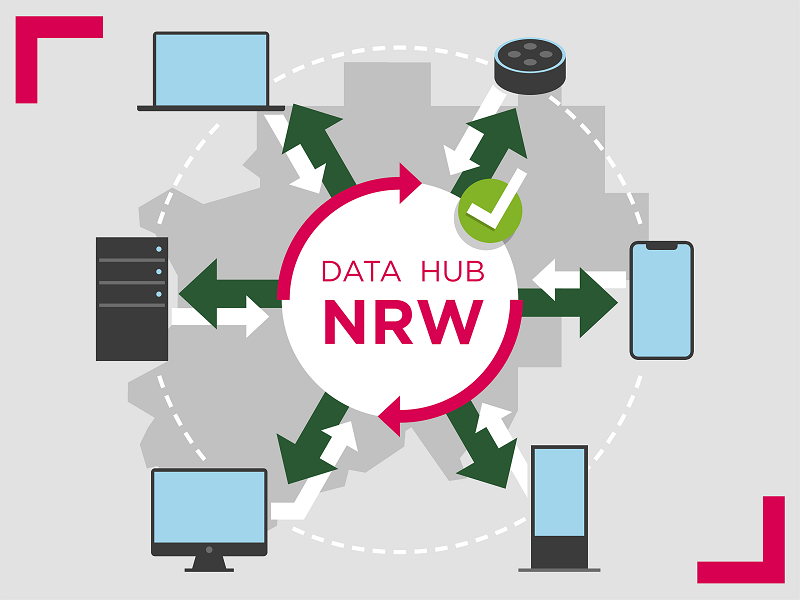
© Tourismus NRW e.V.
Through centralized control and uniform quality criteria, the tourism regions in North Rhine-Westphalia are working together to improve data quality and usability. This not only strengthens the digital presence, but also the cooperation and networking between the partners in NRW as a travel destination. Maintain once, use everywhere – added value for everyone! The Open Data Finder enables a wide range of stakeholders to access and use the openly licensed data.
Guests thus easily receive information via all information channels, when, how and where needed. Thanks to its open structure, the NRW Tourism Data Hub enables new, innovative service providers to fill their products with high-quality tourism data: All players in the state are therefore stored in new apps, portals and other relevant channels from day one.
Project structure Tourism Data Intelligence Initiative NRW
As part of the TDII funding project, tourism in NRW is to be prepared for the aforementioned challenges of this time and the changing travel and booking behavior of the tourism target group. To achieve this, the existing Data Hub NRW is to be expanded to include advanced AI functions. The data in the Data Hub is to be enriched using AI, among other things, and processed in such a way that a comprehensive digital image of the tourism offering in NRW is available. Based on the open data in the Data Hub NRW, guests will receive personalized recommendations in real time for specific target groups, which will improve their travel experience along the entire customer journey. These personalized travel recommendations should also be able to be integrated into the websites of tourism stakeholders and service providers and will thus be able to offer added value for their own guests in addition to increased reach. Another key aspect is gaining new insights into tourism in NRW through an AI-supported analysis of tourism data. In addition, the model implementation of the project measures is intended to identify the opportunities and challenges of using AI in tourism as well as the legal limitations of AI use. In order to ensure the sustainability of the project, the partners and project participants will be trained in the use of AI through a comprehensive qualification initiative. The aim is to impart knowledge and create networks for exchange in order to equip tourism in NRW for the digital future. Further information can be found on the project website of the B2B portal of Tourismus NRW e.V.
Contact persons at Tourismus NRW e.V.
Christian Stühring
Leonie Jasper
Anna Fallico
Rhineland-Palatinate Tourism GmbH (RPT) has been managing and operating the Rhineland-Palatinate digital treasure trove of knowledge with the ten vacation regions of Rhineland-Palatinate (RLP) and 135 locations for almost 20 years. It contains the tourist infrastructure (e.g. tours, accommodation, places to stop for refreshments, sights) and the tourist offer (e.g. events, packages, experiences, guided tours) of the country. This data is still linked via an interface with the accessibility certification data from the “Travel for All” database. Other new additions include public transport data, wine locations, administrative units and digitized data on tourist information boards (brown freeway signs). This decentrally maintained content forms the basis for tourism marketing and guest services throughout the country and is used at various touchpoints. Currently, more than 200 playout channels are connected (e.g. websites, tour portals, apps, booking portals).
As part of the RLP 2025 tourism strategy, the data was consolidated in the RLP DataHub, based on DataCycle technology, and the legal, organizational and technical framework conditions were created for the digital treasure trove of knowledge, which enable the provision of the digital treasure trove of knowledge as open data. This also includes the development of sample contract templates. In addition to providing data for the GNTB’s Knowledge Graph, the DataHub curates data collections and passes them on to partners/further distribution channels (including app service providers, digital guest directories, official journal publishers, web-to-print solutions for host directories and data analysis tools). In addition, RPT is working to connect additional both tourism and non-tourism source systems to continuously expand and improve the digital knowledge base. RPT is involved in various working groups for the further development of the joint tourism knowledge graph for Germany and is committed to uniform data standards in the DACH region in the ODTA. Find out more about the Rhineland-Palatinate DataHub.
Contact persons at Rheinland-Pfalz Tourismus GmbH
Yves Loris
Martin Weier
The Saarland Tourist Board provides all districts, local authorities and service partners with the mein.toubiz database from land in sicht for the structured collection of tourism data. We provide support with the introduction, maintenance and quality assurance. Currently, all Saarland districts are already active in mein.toubiz and support us in the acquisition of individual municipalities. To create added value when using mein.toubiz, we provide the districts, municipalities and service partners with widgets and support them in creating interfaces. This enables them to use the data entered directly for their own websites. This also improves the quality of the data records that are fed into the GNTB’s Knowledge Graph via our interfaces. In order to continuously optimize this process from a technical perspective, we are in close contact with all those involved. Our partner companies are regularly informed and kept up to date on projects, activities at LTO level, developments in the field of open data and AI, and innovations at mein.toubiz.
Tourismus Marketing Gesellschaft Sachsen (TMGS) manages the state-wide central data management with the digital architecture for tourism in Saxony called SaTourN (Saxony Tourism Network). It works with tourism partners in the state, above all Saxony’s destination marketing organizations, on joint data management and the establishment of data-driven tourism. The aim is to create the greatest possible visibility for Saxon tourism data and messages and to provide high-quality content that is as openly licensed as possible. The principle is: bundle once, distribute many times. At the heart of SaTourN is a relational database that provides tourist data – host, event, gastronomy, tour, POI and offer data. As a data hub, it is connected to various primary systems – Outdooractive, Feratel, Regiondo and DAMAS – via interfaces. These systems have already been used intensively for many years by tourism stakeholders in Saxony as a travel destination, so that decentralized data maintenance is possible via learned structures.
Milestones
TMGS designed and implemented the SaTourN system on behalf of the Saxon State Ministry of Science, Culture and Tourism from 2019 in close cooperation with the Saxon vacation regions and cities. The database and the new TMGS website in German and English were launched in January 2022 as the first visible output channels for SaTourN data. Five further foreign-language TMGS websites (Dutch, Italian, Polish, Czech and Chinese) followed by April 2022. Since then, nine websites of Saxony’s tourism regions and cities have also been added on the basis of SaTourN as part of a website framework. In addition, at least five further use cases for open data are being used via SaTourN, including information steles in public places and tourist information offices such as in Görlitz and Leipzig, a digital guest map, a progressive web app and another app application based on openly licensed data. The Knowledge Graph for German tourism, led by the German National Tourist Board, also uses the open Saxon data for other applications.
Partner work and strategic goals
TMGS sees itself as a competence center and innovation driver for the SaTourN project and tourism data management in Saxony. Its task is to coordinate and further develop SaTourN across regions and to support the destinations in implementing their tasks. For technical coordination, it is supported by neusta destination.one GmbH with the “destination.one” database solution. Another goal is to provide openly licensed data (open data), also for numerous other applications beyond the SaTourN cosmos. TMGS works and communicates in data management primarily with the DMOs, which are all closely integrated into the system. They either enter data directly into the database or are integrated via interfaces. As there is already distributed data maintenance in systems such as Outdooractive and Feratel Deskline with many maintenance points in the country, numerous TIs, city administrations and service providers are already involved in SaTourN. More information on SaTourN at www.satourn.travel
Contact persons at Tourismus Marketing Gesellschaft Sachsen mbH
Nadine Wojcik
Tim Meyer
Project Description and Approach
What is SAiNT?
SAiNT stands for Saxony-Anhalt’s intelligent network technology. The initial aim of the platform is to combine, process and disseminate data collected at various locations in the state of Saxony-Anhalt. SAiNT is based on an open data approach. Basically, this involves infrastructure and tourism data and relevant information for investors. On the one hand, the aim is to provide users with a quick overview of the points of interest in region X, which can be filtered and viewed in detail. In addition, IMG is using SAiNT to further develop tourism marketing and location marketing services. To this end, new tools and digital output channels are being created to address target groups even more effectively.
How does SAiNT actually work?
Investitions- und Marketinggesellschaft Sachsen-Anhalt mbH (IMG) has decided to create SAiNT, a central database that collects and merges information from the source databases. However, the partners in the state continue to maintain their data in the systems they are already familiar with – in SAiNT, data is merely enriched and intersected by automatic and semi-automatic systems. This means that all partners not only benefit from an additional output channel, but also gain access to additional data that has been created in the neighboring municipality, district or region, for example. In addition, the Modular Warning System of the Federal Government (MoWaS) and public transport data are two further important data sources that further increase the value of SAiNT data. SAiNT automatically informs its users about warning situations such as forest fires or floods – thus ensuring greater safety on the one hand, but also greater clarity on the other: flooding in one vacation region does not affect safety in another vacation region. The public transport data makes it possible to find the next stop at every POI, every tour and every event – and to plan the route to or from there. All garnished with live data.
Development of SAiNT
Since SAiNT was successfully launched in June 2022, new features have been added time and again. In addition to the integrated warning system and public transport data, SAiNT can also be used as an event calendar. Of course, SAiNT is also one of the data providers for the GNTB Knowledge Graph. Further projects based on SAiNT will also be implemented in the future. For example, the IMG wants to open up to other data sources, create tools for better visitor management and further simplify the use of SAiNT data. In addition, work is constantly being done to improve data quality and quantity by motivating even more partners in Saxony-Anhalt to bring their data into SAiNT and to strive for a consistent increase in data maintenance.
Background
As a center of excellence for digitization in Saxony-Anhalt tourism, IMG has the task of coordinating and managing the establishment of a uniform state-wide system for the collection, qualification and application of tourism data and user data on the basis of a joint digitization and data management strategy. The SAiNT database project forms the most important basis for all projects in this area.
Contact persons at Investitions- und Marketinggesellschaft Sachsen-Anhalt mbH
Barbara Weinert-Nachbagauer
Martin Fricke
If you want to be fit for the future, you need to network your data. Tourismus-Agentur Schleswig-Holstein GmbH (TA.SH) is pursuing the goal of supra-regional, future-proof data management for the entire Schleswig-Holstein tourism industry. In the long term, the vision is to be able to play out data for a wide range of use cases on a wide variety of media in order to reach travelers via a multitude of channels. The existing structures and databases in state marketing, in particular the Schleswig-Holstein Tourism Database (TLDB-SH) at TA.SH, form the basis.
In order to ensure an exchange with other stakeholders in the state, TA.SH is pursuing the concept of a digital data hub. This means that data can be exchanged with tourism stakeholders via the TA.SH interface, even if different systems are used locally for their own data management. In order to make the data from the TLDB-SH more easily accessible for tourism partners and service providers in the future, a white label widget is currently being developed together with infomax. This will be available both in a standalone version and embedded on any website for displaying excursion destinations, tours and events and will access the TLDB-SH open data database. The result is an open data tool that is neither linked to specific clients nor does it require the creation of an individual interface to the database. Further information on the SH Tourism Database.
The rapid technological developments and the associated changes in people’s media usage behavior also require a rethink in the way tourism information is handled. Our guests are increasingly digitally connected. They expect quick and, above all, reliable answers to their questions – preferably on the channels and mobile devices they use. With the Thuringian Content Architecture Thuringia (ThüCAT), the Free State of Thuringia provides all tourism stakeholders with a central data infrastructure for all their product and offer information as open data. It meets today’s requirements for transferring data to a wide variety of applications and platforms in a machine-readable format without technical hurdles. This provides a tool for modern content management. The shared use of the data provided promotes synergies in collaboration and enables better coverage for high-quality tourism content.
A central data pool
ThüCAT currently has around 15,000 open data records containing extensive information on Thuringia’s sights, leisure and cultural facilities, towns, landscapes, restaurants, personalities, public parks and playgrounds and much more. In addition, external databases provide information on hiking and cycling trails, accommodation, events and certified accessibility in the ThüCAT data pool.
Data maintenance and quality
Each ThüCAT content has a responsible editor. Data can be maintained by clubs and associations, cultural offices, tourist information offices and service providers from the leisure, culture, gastronomy/hospitality sectors. The editorial network is coordinated by the regional tourism organizations.
Visibility of ThüCAT data
Collaborations enable ThüCAT data to be displayed on tourism platforms such as www.outdooractive.com or the Thuringia cycle route planner. Other digital uses of the information on infodesks, mobile apps, websites or electronic guest folders are created via local and regional projects. ThüCAT data is also regularly exported to the GNTB’s Knowledge Graph, where it is available to external data users. With the ThüCAT web components developed in 2024, tourism data from the ThüCAT content database can be easily integrated into any website, digital guest directory, info screens and other digital displays. Various modules are available for this purpose – from the search function to a map or list display to the event calendar and a slideshow. The web components can be configured in terms of content and design and are integrated with the help of HTML snippets. This provides service providers, local authorities and associations with an interesting tool for enriching their websites with tourism content.
Germany’s metropolises are at the top – traditional and modern at the same time, they attract millions of tourists year after year. The marketing organisation Magic Cities Germany has set itself the goal of implementing joint media, marketing and sales activities for the ten largest German cities, thus raising their profile in selected overseas markets and increasing the number of overnight stays. The network includes Bremen, Dresden, Düsseldorf, Frankfurt, Hamburg, Cologne, Leipzig, Munich, Nuremberg and Stuttgart. The Magic Cities represent almost 30 % of the incoming tourism in Germany and are therefore a significant factor for Germany as a tourism location.
Especially in metropolitan areas, there are countless different data that are of concern to tourists if they want to have a successful stay. The Magic Cities contribute to the development of practice-oriented structures for the Open Data project with their know-how.



